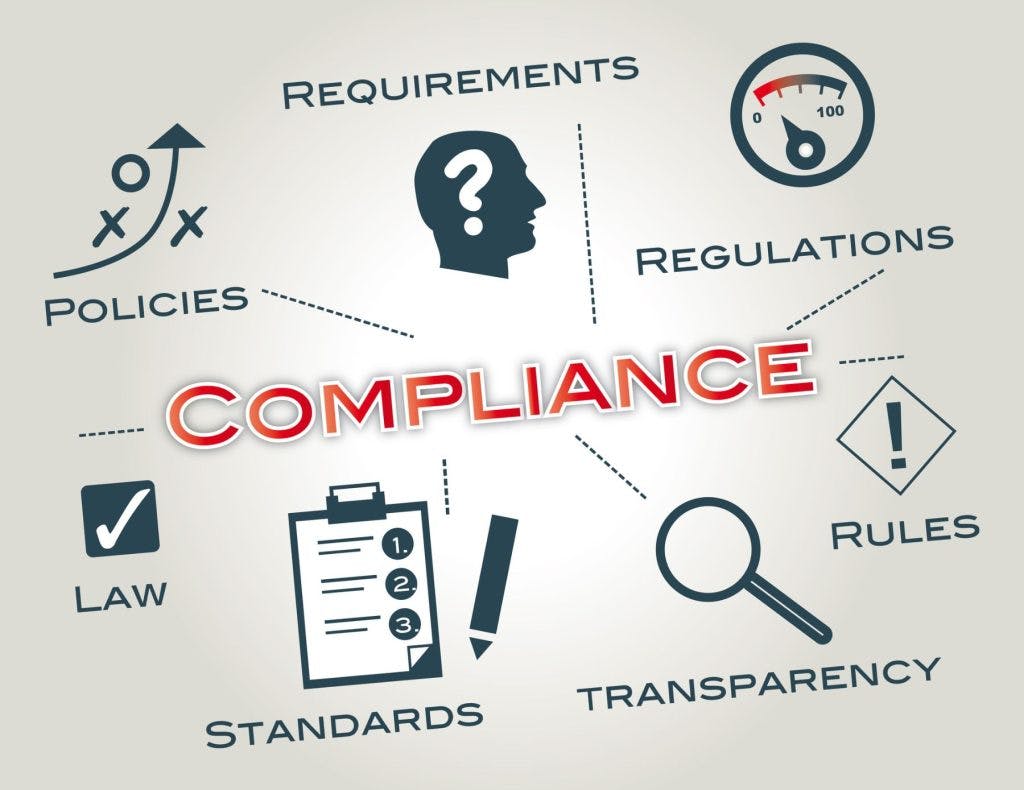The financial sector is under a tremendous amount of pressure, and it is incumbent on all financial institutions, including banks, to make sure they secure their files properly. Think about all of the confidential information that your bank has regarding your finances. This could include information related to your car, your house, investment accounts, credit cards, retirement accounts, and other financial accounts.
Because your bank has all of this information, it immediately becomes an attractive target for hackers and other cybercriminals. Fortunately, banks can mitigate some of these risks if they take appropriate steps. Take a look at a few key points regarding file security and storage solutions for banks and other financial institutions.
Important Compliance Measures Banks Need To Follow
As you take a look at the various file storage and security options available, you need to think about compliance. File protection in banking has never been more important, and if you invest in secure file sharing solutions, you can reduce your chances of facing fines and sanctions from various regulatory organizations.
As you consider your secure file transfer options, some of the most important compliance points you need to note include:
Database Security
Banks and other financial institutions have a tremendous amount of information on their users, and they need to make sure that all of this information has been properly encrypted. Ideally, banks should take advantage of 128-bit encryption, but as an extra layer of security, banks may want to use a 256-bit encryption system. This type of encryption is important for minimizing the chances of a criminal hacking into the system and stealing someone’s confidential information.
Password Management
Without a doubt, strong password management rules are crucial in the financial sector. A cybersecurity system is only as strong as its weakest link, and unfortunately, the weakest link is often the people who use that system.
For example, there are too many people who use the same password across multiple accounts, and many people do not use a password that is strong enough. Banks should make sure that all of their employees use passwords that use a mixture of lowercase letters, uppercase letters, numbers, and symbols. Furthermore, banks should encourage their users to change their passwords periodically.
Automatic Retention and Destruction
Automatic retention and destruction are both important. Banks might be required to keep certain files for their customers and business partners for a certain amount of time, but those files need to be secured properly. This means following all appropriate regulatory protocols regarding security measures. Then, documents need to be destroyed appropriately when it is time to get rid of them. This is important for financial institutions, as it protects not only their customers but also the institution itself.
Clear Paper Trail
Because banks and other financial institutions have a high chance of being audited, they must make sure there is a clear paper trail that complies with all rules and regulations handed down by the federal government. When the government has questions about a specific account, banks should be able to provide the government with a clear picture of what has been happening. If there is no paper trail available, the bank could face a variety of fines and sanctions.
Granular User Permissions
Granular permissions are also very important. This means that banks should provide all of their employees with access to all of the information they need to do their jobs, but employees should not be given access to files and documents that are not pertinent to their daily duties.
This is not necessarily a reflection of a lack of trust, but instead, it is about hedging risk. If that individual has their credentials stolen, you do not want the criminal to gain access to everything. Granular user permissions ensure that the scope and scale of the hack are limited and contained. Ensure users only have access to the information they need to do their jobs.
Automatic Backups
As a part of scalable agency growth, automatic backups need to play an important role. All information should automatically be backed up to multiple locations. Ideally, there should be at least three copies of all documents stored in at least two locations, with one of those locations being off-site. This policy is crucial because in the event that something happens to the original document set, the bank can simply restore its data from one of these backups and stay on track.
How To Choose a Secure File Sharing Platform
As banks and financial institutions evaluate their options for file sharing and storage, it is crucial to identify the right system. Sadly, there are a lot of banks that rely on consumer-grade file storage systems. Some of the risks of using a consumer-grade system include:
- The storage space might not be enough to accommodate all of the documents. It is always better for banks to go with a system that provides access to unlimited file sizes.
- It can be very difficult for banks to share information with another institution securely, particularly using a consumer-grade system.
- A consumer system is not necessarily going to comply with all of the various financial rules and regulations that have been set by the federal government.
For all of these reasons, it is better to use a commercial system that has been specifically designed for the financial sector. Some of the factors to consider include:
Security Measures
One of the first factors that banks need to consider is the security that has been put in place by the platform. Some of the biggest security risks that banks face today include ransomware, trojan horse attacks, phishing attacks, and SQL injections. Banks need to think about the security systems provided by the file management platform and take a look at the history of the program to see if a data breach has ever taken place.
Workflows and Accessibility
Banks should also consider the workflow tools and accessibility options provided by the platform. Today, there are a lot of people who work remotely, and banks want to make sure that their employees have access to all the information they need to do their jobs. Of course, working remotely also introduces a variety of potential security risks, so they should make sure that there is a balance between easy access and appropriate security protocols.
Compliance Measures
Lastly, banks also need to think about many of the compliance issues that have been listed above. The government keeps a close eye on the banking sector because of how important it is to the rest of the economy. Crucially, banks must make sure that any file transfer platform they use complies with the Dodd-Frank Act, SEC regulations, and any additional rules that have been put in place by the FTC.
If banks can think about all of these issues, they should have an easy time finding the best file sharing platform to meet their needs. One of the best options on the market today is SmartFile.
Rely on SmartFile for All File Sharing and Storage Needs in the Banking Sector
As banks and financial institutions evaluate their options for file transfer and storage, check out SmartFile. SmartFile provides a number of benefits for all financial organizations when it comes to file management. Some of the top benefits include:
1. Strong Encryption Measures
One of the top benefits of using SmartFile is that you will get access to strong storage and transfer encryption levels. The vast majority of systems only encrypt information when it is at rest, either at its origin or destination. Instead, it is important to make sure that all confidential financial information is protected, not only when it is at rest but also when it is on the move.
SmartFile will provide all of your files with either 128-bit encryption or 256-bit encryption. You are also in control of which files are encrypted, how they are encrypted, and who has access to your encryption keys. You may even want to take advantage of an HP 440 card that can encrypt your files for you.
2. Unlimited File Sizes for Storage and Transfer
One of the top benefits of using SmartFile is that you also get unlimited file sizes. You do not have to worry about exhausting all of the space on your database, as you have all the room you could ever need. If you need to increase the size of your storage, simply reach out to us.
This will also make it much easier for you to send information to somebody else. You do not have to worry about running into an email size limit, as we have plenty of ways for you to distribute information to clients and business partners. Of course, this information is going to be encrypted when you send it from one place to another.
3. File Versioning
You can also take full advantage of file versioning. You do not need to worry about having multiple versions of the same document or struggling to figure out which version is the most recent. Now, with access to comprehensive file versioning, you can figure out which version is the most recent, who has been editing the document, and who has viewed its information. This will make it much easier to establish a clear trail of who has been doing what with various documents on your database.
4. Strong Monitoring and Reporting
Monitoring and reporting are very important. You need to keep track of who has access to your files and when they are being accessed. For example, if someone accessed one of your documents inappropriately, you need to know who did so.
With SmartFile, you can create specific accounts that will increase your visibility over your documents. You can control exactly who has access to what and take advantage of comprehensive reporting features regarding uploads, downloads, and where certain activity is coming from. This type of paper trail is also important for complying with all government rules and regulations.
5. Customizable Features
We understand that every financial institution is different, and that is why you get access to customizable features. You can turn on and off various features that will make sure that you have access to what you need without cluttering your dashboard.
You can also take full advantage of real-time notifications, and you are in full control of which notifications you receive and which ones you do not. If there are specific types of activity that you want to be alerted to, we can set up notifications for you.
6. The Latest Cybersecurity Measures
Finally, you also get access to regular updates when it comes to cybersecurity features. As the digital world continues to change, hackers are continuing to work hard to get around the latest security features. That is why you must rely on a file storage and transfer program that receives security updates from time to time.
SmartFile remains vigilant for changes in the world of cybersecurity, and we roll out updates regularly. That way, if there is a new digital threat, we can update our security measures to make sure that all of our clients have the necessary level of protection. That includes our banks and Financial institutions.
Rely on SmartFile for All File Security and Storage Needs in the Banking Sector
Clearly, there is a lot of information that banks and other financial institutions need to know when it comes to file security and storage solutions. If you are looking for an easy file transfer and storage solution that comes with all the security and compliance measures you need, look no further than SmartFile.
SmartFile comes with a variety of document security and password management tools, including two-factor authentication. By investing in the right cybersecurity measures, including end-to-end encryption, you can retain the confidence of your clients, comply with all federal rules and regulations, and reduce the chances of facing a cyberattack down the road. Rely on the best file solutions for banking, and explore everything that SmartFile has to offer.


